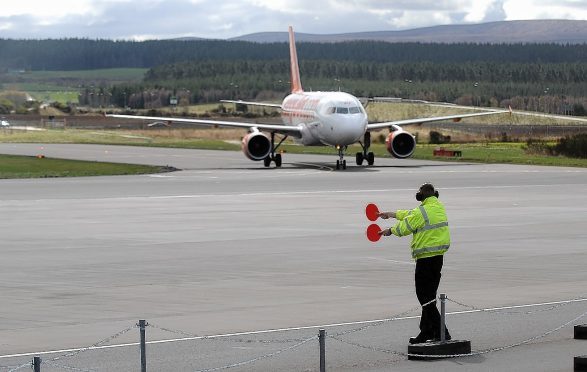A controversial new report from a Scottish think-tank claims Holyrood plans to halve air passenger duty (APD) will damage the economy and reduce funding for public services north of the border.
In its response to a Scottish Government consultation launched in March, the Common Weal – whose left-leaning board counts actor Elaine C Smith, 1980s pop star Pat Kane and model and fashion designer Eunice Olumide among its members – warns the proposed 50% cut in APD will only encourage more Scots to fly out of the country and spend money abroad.
Report author and Scottish Greens campaigner Craig Dalzell, citing evidence from sources including PwC, said: “The case for business growth due to an APD cut appears particularly weak.
“Business flights are driven by need and time pressures rather than price.
“The case for increases in tourist traffic is substantially undermined by the impact of cheaper tickets inducing more domestic tourists taking foreign trips instead.
“The spending power of the outbound tourists most likely to take more trips outside of Scotland is greater than the typical spending power of the inbound tourists.
“Whilst the economy most directly linked to airport traffic will see an increase in activity, this increase will ultimately be capped by the capacity of the airports in question.”
He added: “If the reduction in revenue due to the APD cut is not at least recouped in full, then additional cuts in public spending may be required.
“The economic case for a cut and eventual elimination of APD appears far less strong than has been claimed by proponents.”
According to Mr Dalzell, who has degrees in laser physics and photonics, any positive spin-offs in areas near airports would “disproportionately benefit the central belt”.
The Scottish Government intends to halve the burden of APD in Scotland by 2021 under new powers recommended by the Smith Commission.
APD has few friends in the north and north-east, where business chiefs, MSPs and MPs have long campaigned to have it reduced or scrapped altogether.
Aberdeen International Airport managing director Carol Benzie said: “There is no escaping the fact that APD is the highest form of aviation tax in the world and it is quite clearly undermining Scotland’s connectivity.
“In addition to acting as a barrier to securing new services, APD makes it extremely challenging to maintain vital, existing services.
“This is of particular relevance to Aberdeen, given the prolonged downturn in our economy.”
She added: “Unless APD is reformed, people travelling to and from Scotland – who must fly due to the lack of feasible alternatives – will face some of the highest levels of taxation in the world.
“Not only is it a clear disincentive to travel, it has the very real potential to make routes unviable and dissuade airlines from placing aircraft in Scotland.”
A Scottish Government spokeswoman said: “UK APD is one of the most expensive taxes of its kind in the world. It continues to act as a barrier to Scotland’s ability to secure new direct international routes and maintain existing ones.
“Reducing it will help attract more direct flights, improving our global connections, boosting the economy and creating jobs.”
